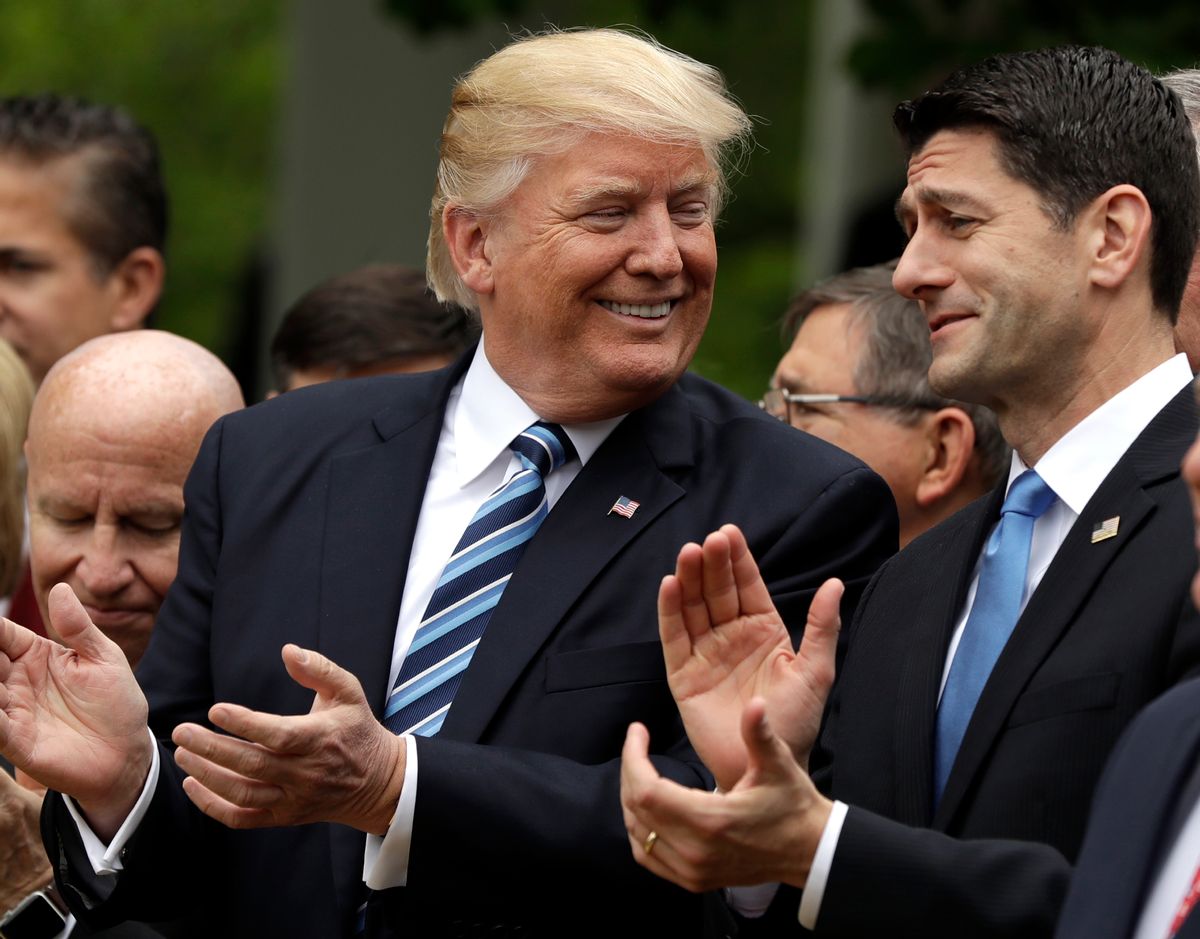It should come as no surprise that the deeply unpopular tax overhaul — rushed through Congress and signed by President Donald Trump in late December — is extraordinarily flawed. And now, they need the help of the Democrats.
The GOP's plan has hit several snags as it's been implemented in recent weeks and months, affecting dozens of things from tax write-offs for restaurants and retailers to the president's own real estate business, Politico reported.
"This is not normal," Martin Sullivan, chief economist at the nonpartisan Tax Analysts said of the technical difficulties the law has had. "There’s always this kind of stuff, but the order of magnitude is entirely different."
Politico elaborated on what damage is being done with this tax bill:
Another would allow wealthy money managers to sidestep a crackdown on lucrative tax breaks that allows them to pay lower taxes on some of their income than ordinary wage earners. A third creates two different start dates for new rules that make it harder for businesses to shave their tax bills.
[. . .]
Another bug may allow hedge funds, private equity firms and others to dodge a crackdown on the rules surrounding so-called carried interest by taking advantage of a vague reference in the law excusing corporations from the new rules. Lawmakers appear to have meant C corporations like Apple or Ford, but lawyers say it could also excuse S corporations, which could be easily used to duck the restrictions.
It's obvious that this would be the result of a one-sided piece of legislation that was secretly written and rushed through Congress with next to no substantive discussion.
Republicans are now looking for ways to fix the law, and include those fixes in a bill that's needed to fund the government, Politico noted. Conservative lawmakers are now, however, faced with the problem of having to work with the Democrats who aren't exactly eager to come their assistance.
"We’re not going to say to Republicans, 'Oh tell us what you want to do,'” Sen. Sherrod Brown, D-Ohio said. Brown is a member of the tax-writing Finance Committee. "We want to make the bill better, not just correct whatever technical fix is needed."
Berkshire Hathaway CEO Warren Buffett is a perfect example of how the tax plan is not only just a fundamentally sloppy piece of legislation, it's also panning out exactly as was foretold. Buffet announced on Saturday that Berkshire Hathaway made a net gain of $65.3 billion in 2017, but that "only $36 billion came from Berkshire's operations."
The rest of the gains, roughly $29 billion, came from the tax plan. "A large portion of our gain did not come from anything we accomplished at Berkshire," he wrote, according to CNN.
Yet, since the bill was passed, Trump has taken the time to tout it repeatedly and has lauded companies that said they would gift employees with $1,000 bonuses as a result of the plan. While a handful of corporations did promise one-time bonuses, many also discreetly consolidated their operations and laid off hundreds, if not thousands of employees.



Shares